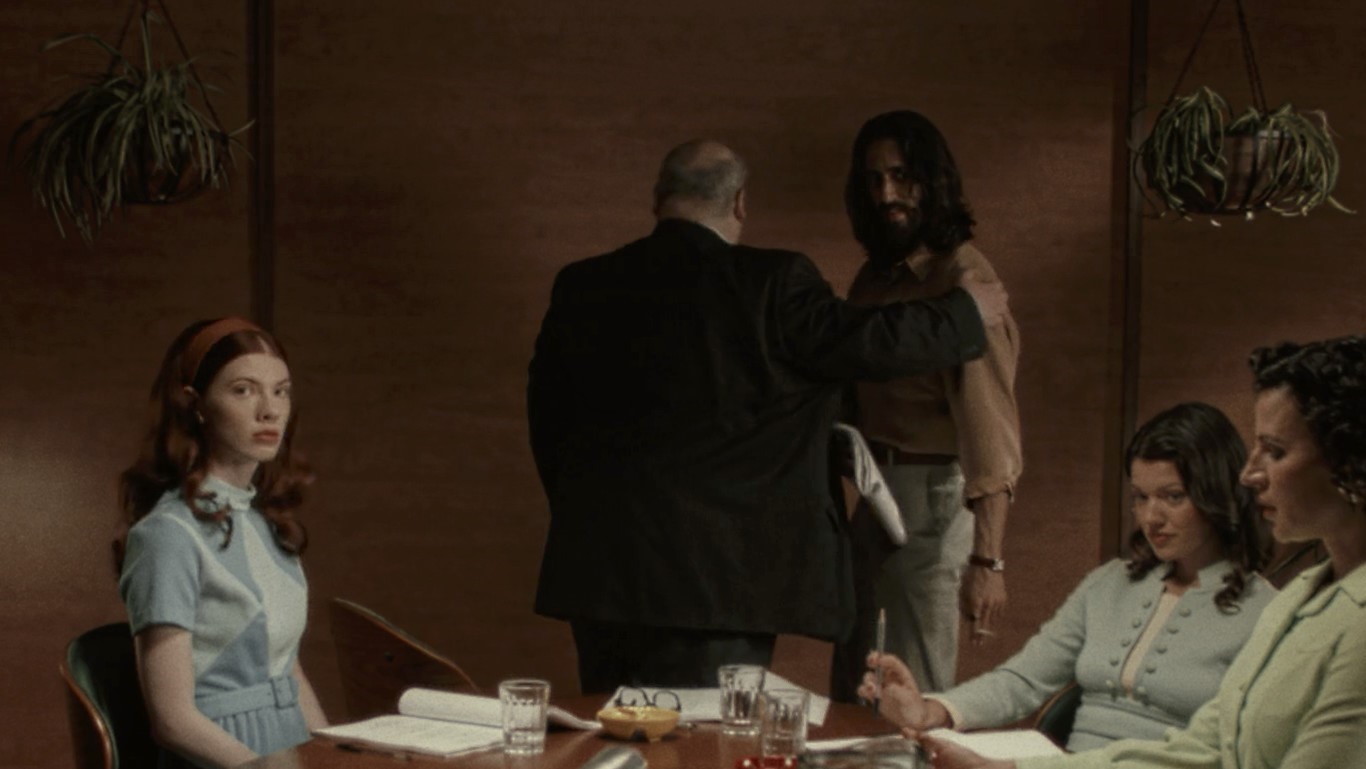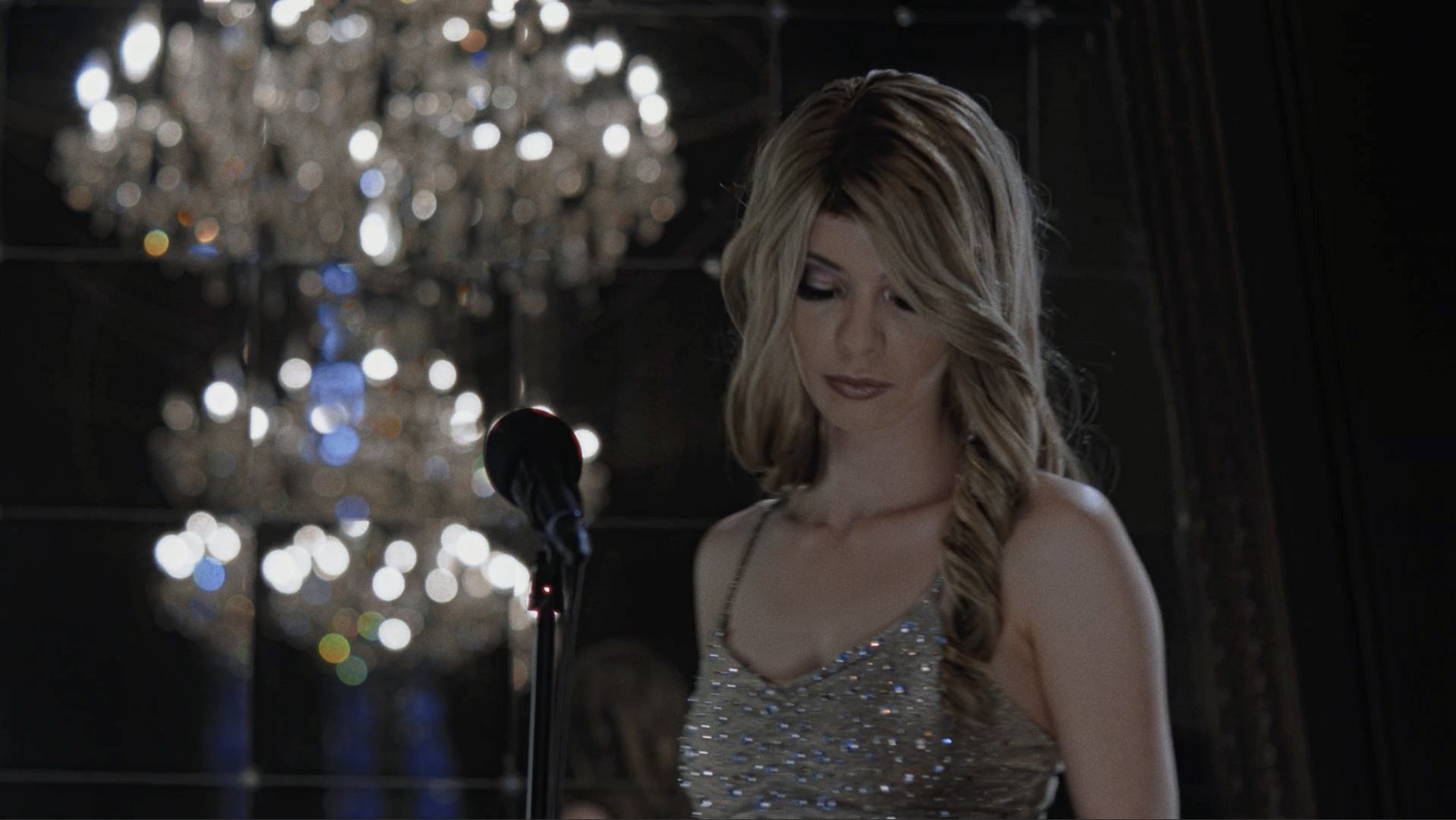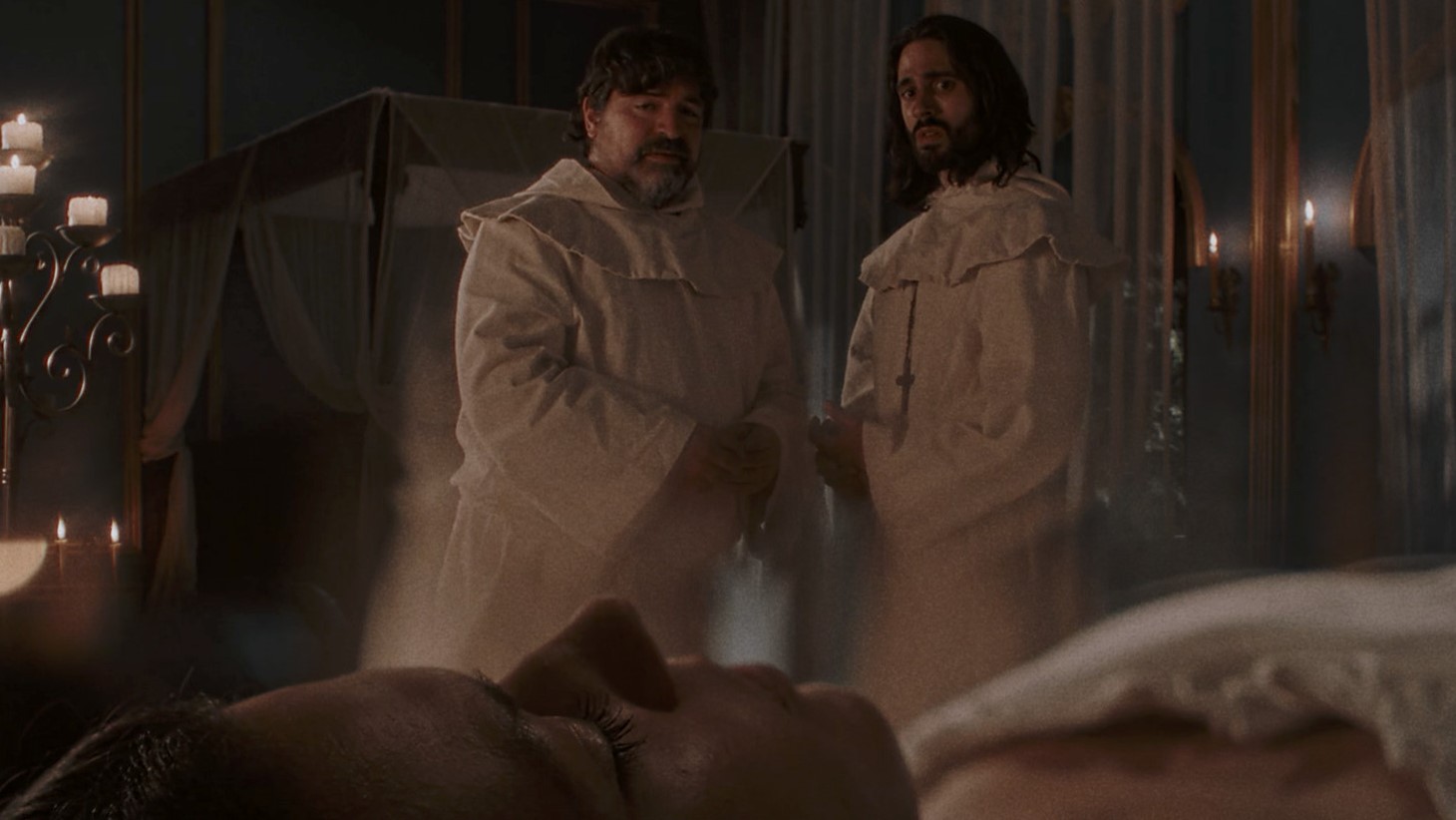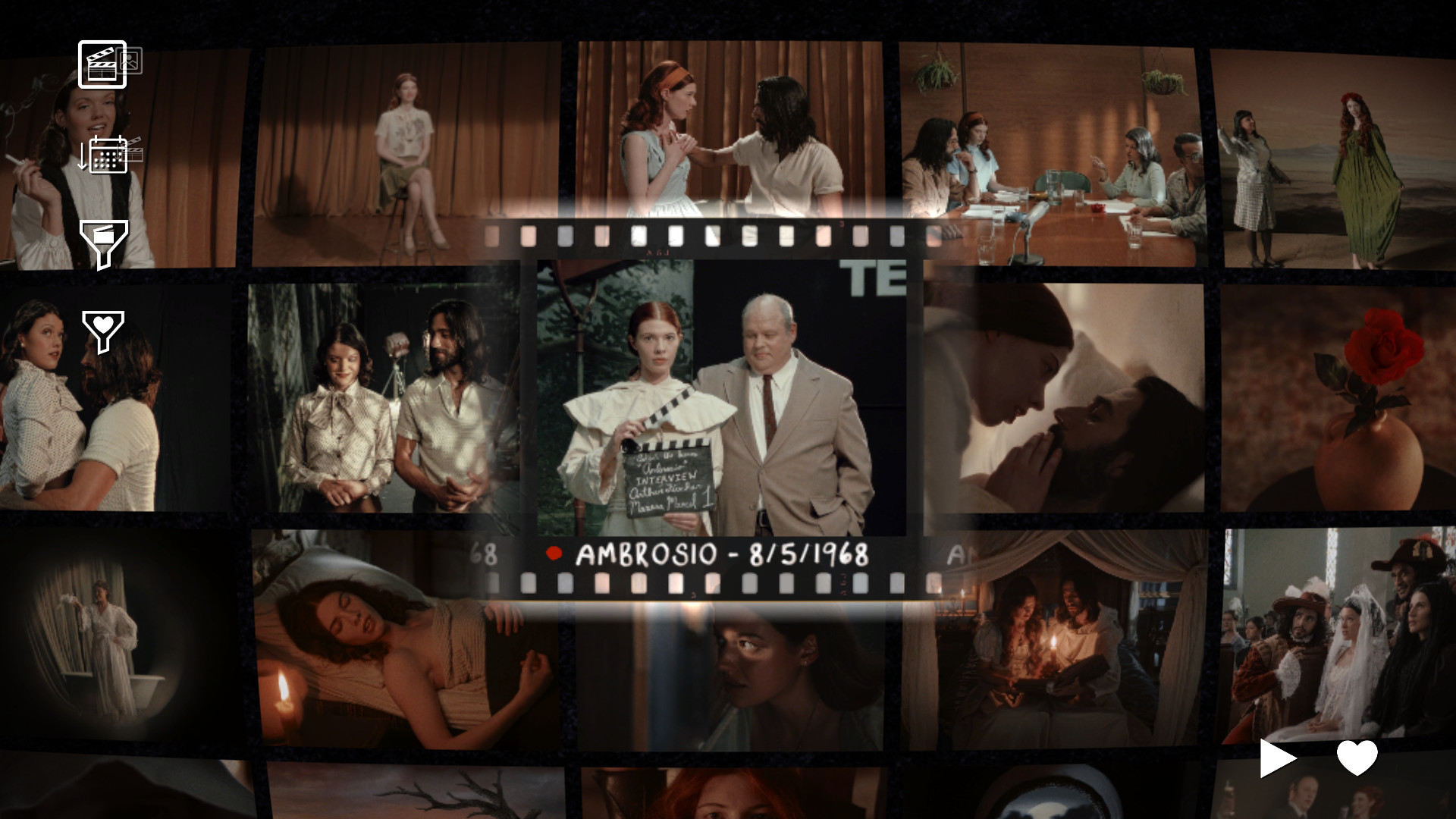
I scour the grainy footage of a seductive 60s film, watching as my elusive starlet, clad in a white robe, places individual red roses in a vase as she flirts with a rugged monk. When the scene comes to an end, my eyes dart around my screen as I rewind and fast forward the footage. What stands out? The roses do, of course, but there’s a painting of our leading actor that has particularly caught my attention.
I click on the painting and am pulled to another scene, this time in an art gallery. Once again the starlet, Marissa Marcel, is front and center but, this time, she’s sporting a quintessentially 70s haircut that makes her almost unrecognizable. I click on her face and am transported to another scene. The crisp footage tells me it’s not the 70s anymore. Marissa has adopted a pop princess look for this film, befitting its late 90s setting. But, somehow, she’s not aged a day since the 60s. What the hell is going on?
It’s a question I asked myself again and again as I crept further and further down the rabbit hole of Immortality, searching for the whereabouts of the actor. I didn’t know what was happening but I wanted to. I needed to know how the pieces fit together. I wanted to know what happened to Marissa.
Trusting intrigue

Immortality doesn’t really tell you what it expects from you, only that you must find out what happened to Marissa Marcel. The rest is up to you to figure out. You are given video clips of TV interviews, rehearsals and unearthed scenes from Marissa’s three lost films: Ambrosia, Minsky, and Two of Everything. By simply clicking on something within a scene, you can jump to the same or similar item in another scene in another of Marissa’s films.
At points, I was mesmerized into silence, on tenterhooks as I watched the secrets I had uncovered unfold on screen.
That’s really all the guidance you’re given when Immortality begins – but where both its challenge and brilliance lie. Creator Sam Barlow trusts the player’s own intrigue to lead them to the end goal and it pays off.
Once I found the start of the thread I was looking to find, I was like a bloodhound on the trail of a scent. The fragmented pieces slowly began to come together to create an image of Marissa’s life – taking me on a journey I never expected. Having played Barlow’s Telling Lies, I’m all too familiar with the fact that all is never quite what it seems on the surface and, in Immortality, that’s certainly the case.
At points, I was mesmerized into silence, on tenterhooks as I watched the secrets I had uncovered unfold on screen. I was often completely bewildered and confused, but every time I inched forward toward the truth of Marissa's disappearance, finding a scene I hadn’t uncovered before, I felt like a real detective. That sense of accomplishment trumped the bewilderment, in fact, it pushed me to want to continue – to find every hidden scene and to, somehow, work out what it all meant.
Sign up for breaking news, reviews, opinion, top tech deals, and more.
Not all those who wander are lost

What helped that drive was the brilliance of the live-action performances. Like Telling Lies and Her Story before it, the impact of Immortality’s gripping story rests largely on its cast. Manon Gage is enchanting as Marissa, while Charlotta Mohlin’s performance (as a character I won’t mention here) is simply spellbinding. Frankly, the best I’ve seen in a game to date.
Likewise, the scenes themselves are captivating. Each of Marissa’s unreleased films is set during a different period, meaning you jump backward and forward between the 60s, 70s, and 90s.
With so much time jumping involved, it’s a testament to Sam Barlow, and co-developer Half Mermaid, that you never feel lost. Sure, you feel confused by the story at times, but you always know which time period you’re in. That’s thanks to the subtle changes in how the scenes are shot, the costumes, and the actors in the scenes. It’s a beautiful piece of filmmaking.
Unanswered questions

That’s what makes Immortality stand out for me in 2022: it’s unlike anything else I’ve played. It experiments with the medium in a way I’ve rarely seen, blurring the lines between an arthouse film and a game – all the while keeping you on your toes. Not even Barlow’s previous releases play with your mind the way Immortality does.
The problem is, it’s hard to talk about Immortality without spoiling the aspects that make it one of this year’s most beguiling releases. So you’ll just have to trust me on this: it’s better to go in blind. It’s better to unravel the secrets for yourself and to feel that sweet satisfaction when events start to make some sort of sense. Though, saying that, you may have more questions than answers at the end.
Even when I rolled the credits, I wasn’t quite sure what I had experienced. I immediately messaged friends and colleagues, asking how they had interpreted the game’s events. I was desperate to know if they matched my own. But every answer came back different, bar some clear commonalities.
Months after playing, I still can’t stop thinking about Immortality, I still google the events of the game to see how they were intended to be interpreted. But, even then, some questions remain that may never be answered. I’m like a detective who solved a case but just can’t stop thinking about the one insignificant element that never quite made sense – or maybe it did, I’ll never know.
An award-winning games journalist, with seven years of experience in games journalism and a degree in journalism from City University, London, Vic brings experience from IGN, Eurogamer, The Telegraph, VG247, Dot Esports and more to the TechRadar table. You may have even heard her on the radio or speaking on a panel, as she’s previously appeared on BBC Radio 4, BBC Radio 5, BBC Radio Ulster and more. Not only is Vic passionate about games, but she's appeared on both panels and podcasts to discuss mental health awareness. Make sure to follow her on Twitter for more.